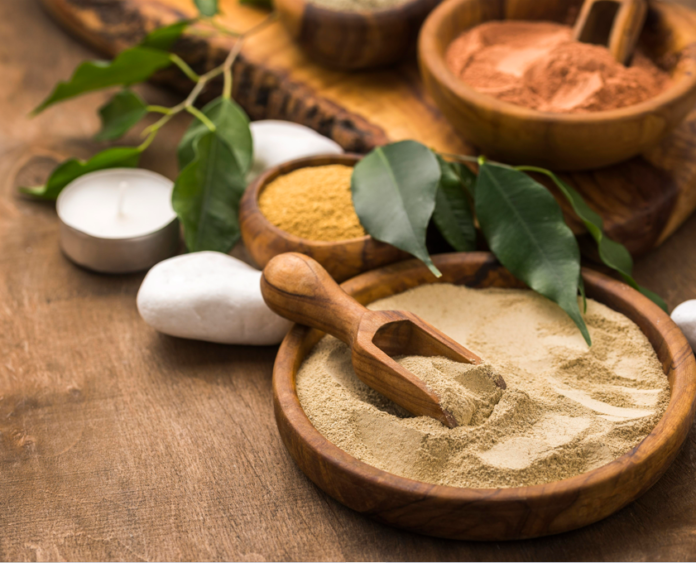Table of Contents
Ayurveda vs. Allopathy vs. homeopathy: Ayurveda, allopathy and homeopathy are three different approaches to medicine. Ayurveda emphasizes natural healing and prevention, while allopathy focuses on treating symptoms using pharmaceutical drugs. Whereas Homeopathy is a system of medicine based on the principle of “like cures like” and uses highly diluted substances to treat the body’s natural healing processes. In this article, we will explore the history and principles of Ayurveda, allopathy & homeopathy and compare their advantages and disadvantages.

Ayurveda vs. Allopathy vs. homeopathy
History of Ayurveda
Ayurveda is an ancient Indian system of medicine that has been practiced for over 5,000 years. Its principles are based on the interconnectedness of the mind, body, and spirit. Ayurvedic treatments include natural therapies such as herbal remedies, massage, and lifestyle changes. Ayurveda has gained popularity around the world in recent years as people look for natural and holistic approaches to health and wellness.
History of Allopathy
Allopathy, also known as Western medicine, is a system of medicine that originated in Europe in the 19th century. It focuses on treating symptoms using pharmaceutical drugs and surgery. Allopathy has become the dominant system of medicine in the Western world and is often used for acute conditions and emergencies. Despite its focus on symptom management, allopathy has made significant strides in treating many acute and chronic medical conditions.
History of Homeopathy
Homeopathy is a system of medicine that originated in Germany in the late 18th century. It is based on the principle of “like cures like” and uses highly diluted substances to treat the body’s natural healing processes. Homeopathy has gained popularity in recent years, particularly in Europe and India, as an alternative to allopathy and a more natural approach to health and wellness.
Ayurveda vs Allopathy
Ayurveda vs. Allopathy: Ayurveda and allopathy have different approaches to medicine. Ayurveda emphasizes natural healing and prevention, while allopathy focuses on treating symptoms using pharmaceutical drugs. Ayurveda believes in understanding the root cause of the disease and eliminating it. In contrast, allopathy focuses on managing the symptoms using drugs and surgeries. While Ayurveda may take longer to show results, it has fewer side effects and promotes long-term health. On the other hand, allopathy is often the go-to option for acute conditions that require immediate relief.
Allopathy vs Homeopathy
Allopathy and homeopathy have different principles and approaches to medicine. Allopathy uses pharmaceutical drugs and surgery to manage symptoms, while homeopathy uses highly diluted substances to stimulate the body’s natural healing processes. While allopathy is widely accepted and has been scientifically proven to be effective, homeopathy is still considered controversial and has not been accepted by mainstream medicine. However, many people swear by homeopathy and prefer it to allopathy due to its more natural approach to healing.
Ayurveda vs Homeopathy vs Allopathy vs Siddha
Ayurveda, Siddha, homeopathy, and allopathy are four different systems of medicine that are widely practiced in India. Ayurveda and Siddha are both traditional systems of medicine that have been practiced for thousands of years. Ayurveda is based on the principles of the interconnectedness of the mind, body, and spirit, while Siddha is based on the principles of the five elements – earth, water, fire, air, and space.
Homeopathy is a relatively new system of medicine that uses highly diluted substances to treat the body’s natural healing processes. Allopathy, or Western medicine, is the dominant system of medicine in the Western world and focuses on treating symptoms using pharmaceutical drugs and surgery. Each system of medicine has its unique principles and approaches, and the choice of which system to use depends on the individual’s health condition and personal beliefs.
Advantages and Disadvantages of Ayurveda and Allopathy
Both Ayurveda and allopathy have their advantages and disadvantages. Ayurveda emphasizes natural healing and prevention, and its treatments are generally free of side effects. However, Ayurveda may not be suitable for acute medical conditions that require immediate relief. Allopathy, on the other hand, is often the go-to option for acute conditions that require immediate relief. However, allopathic drugs often have side effects, and their long-term use can lead to dependency. The choice of which system of medicine to use depends on the individual’s health condition and personal beliefs. It’s essential to consult a qualified healthcare professional before deciding which system of medicine to use.
FAQ:
Homeopathy or Ayurveda which is better for skin?
Both homeopathy and Ayurveda have a natural and holistic approach to skincare. Homeopathy believes in treating the individual’s unique symptoms to find the underlying cause of skin problems. Ayurveda, on the other hand, emphasizes a healthy diet, lifestyle changes, and herbal remedies to promote healthy skin. Both systems of medicine have been used for centuries to treat various skin problems and have their unique benefits. The choice of which system to use depends on the individual’s skin condition and personal beliefs. It’s essential to consult a qualified healthcare professional before deciding which system of medicine to use for skincare.
Homeopathy vs allopathy which one is better for anxiety?
Both homeopathy and allopathy have been used to treat anxiety. Allopathy typically uses pharmaceutical drugs to manage anxiety symptoms, while homeopathy uses natural remedies such as plant extracts and minerals. While allopathic drugs are widely accepted and have been scientifically proven to be effective, they often have side effects and can be addictive. Homeopathy, on the other hand, has fewer side effects and promotes long-term health. However, homeopathy is still considered controversial and has not been widely accepted by mainstream medicine. The choice of which system to use for anxiety treatment depends on the individual’s anxiety condition and personal beliefs. It’s important to consult a qualified healthcare professional before deciding which system of medicine to use for anxiety treatment.
Ayurveda vs Allopathy for Diabetes
Ayurveda vs. Allopathy: Diabetes is a chronic medical condition that affects millions of people worldwide. Ayurveda and allopathy have different approaches to managing diabetes. Ayurveda emphasizes lifestyle changes such as diet and exercise, along with herbal remedies and other natural therapies. Allopathy, on the other hand, uses pharmaceutical drugs such as insulin to manage blood sugar levels. While both approaches have their pros and cons, Ayurveda is often preferred by those looking for a more natural and holistic approach to managing diabetes.

Conclusion
Ayurveda, allopathy, and homeopathy are three different systems of medicine that have their unique principles and approaches to healing. While Ayurveda emphasizes natural healing and prevention, allopathy focuses on treating symptoms using pharmaceutical drugs and surgery. Homeopathy uses highly diluted substances to treat the body’s natural healing processes. Each system of medicine has its advantages and disadvantages, and the choice of which system to use depends on the individual’s health condition and personal beliefs. It’s important to consult a qualified healthcare professional before deciding which system of medicine to use.
Credits and links:
To read more such articles on Hindu mythology, click here: https://shreevedic.com/
Photo Credits – Image by Freepik
– Image by Freepik

















